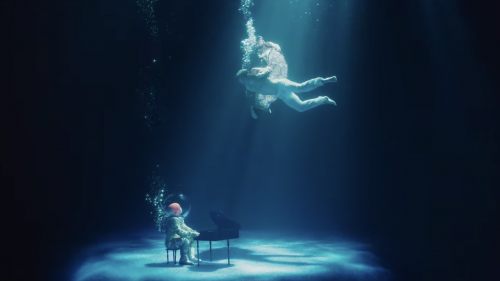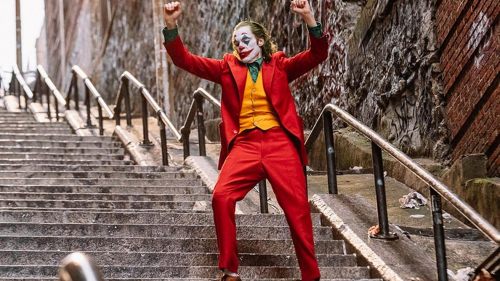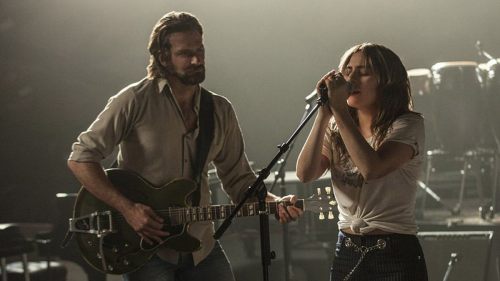Range Isn’t Everything: Acting For The Camera, Not The Awards
In awards season, the conversation around acting always brings up the same questions. How did this actor transform themselves for the role? What unusual physical or vocal tics did they adopt? Do they sing? Dance? Improvise? Did they injure themselves for the role? How different is this character from the rest of their oeuvre? We always joke that the awards for “best” acting go to the performances with the “most” acting, but the truth is that we don’t really have the collective language to discuss acting that’s good without being flashy.
From a layperson’s perspective, it’s easy to see why this method of judging acting has flourished. After all, the more visible the acting is, the more people are likely to notice it. Certainly, acting awards bear this out, and appreciation of actors in general often revolves around the range and scale of their performances. But range and scale aren’t everything, and this attitude ignores much of the moment-to-moment process of acting - not to mention all the great acting you’ve simply never noticed. Actors don’t have to portray ostentatious, idiosyncratic characters to be good at their craft.
Stage acting is about playing to the audience in the back row, for whom actors are potentially, depending on the venue, tiny silhouettes. For stage, actors have to scale their performances louder and larger than life for their intentions to read to everyone in the room. Musicals, dance shows, and opera are the ultimate expression of this, but it goes for all stage forms: performances need quantity if their quality is to be seen.
Conversely, screen actors must play to the intense scrutiny of the close-up. Audiences understand the nuances of facial expressions so instinctively that an ounce of untruthfulness, a touch of the wrong emotion, can scupper a performance. Being good at screen acting involves finding the sweet spot between blank emotionlessness and overwrought scenery-chewing (a sweet spot that changes based on the film and the character), engaging the audience, and making them suspend their disbelief.
A stark reality that often dismays the “my kid could do that” crowd is that it’s actually really difficult to act believably on screen. Most beginners instinctively overact for camera - either because they’re nervous and self-conscious, or because we often get deceptive impressions about what acting is. Ask someone to precisely imitate a screen performance, and they’ll often exaggerate it; we instinctively grant enormous psychological weight to screen performances, and accordingly often think actors are doing more than they are. Thus, self-awareness - about one’s face, one’s emotions, one’s movements - is crucial. All acting centres around focus - about being “in the moment” - but screen acting is exceptionally unforgiving. The best actors are those who can control the emotional impact of the tiniest changes in expression or vocalisation - and often, those roles aren’t showy at all.
Like every element of filmmaking, acting is merely a tool for storytelling. Being convincingly human on camera is hard, and paradoxically, the best actors make it look effortless. We tend to champion standout chameleons like Daniel Day-Lewis, or Meryl Streep, or (this year) Joaquin Phoenix; they're all great, but in targeting them specifically, we tend to underrate solid, reliable ensemble players who simply help nudge story along. We don’t actively notice these folks - they’re often not even “character actors” per se - but whenever they crop up, they’re a comforting presence. We just instinctively feel the story’s in good hands with them, and while few moviegoers will ever think “holy shit, it’s William Fichtner,” or “fuck yeah, it’s Margo Martindale,” nearly all will, at least subconsciously, think “oh, cool, it’s that actor from that other movie.”
Lead actors are another thing entirely - and great leading performances often exist without much quote-unquote “character” as well. Playing a protagonist - regardless of the story’s genre - doesn’t just involve playing a character; it requires serious narrative heavy lifting. Led actors have are onscreen a great deal, and unless the film’s dialogue is horribly overwritten, they have to communicate an immense amount using only their faces, and serve as a sounding board for the rest of the cast to do the same. It doesn’t matter how well an actor affects an accent or a limp or a voice if they can’t communicate decisions with their eyes.
Most of all, leading a film requires precise focus, lest the audience drop out of the moment. With a few exceptions, great leading actors tend to play straightforward principal characters in whatever film they’re doing. They don’t, by and large, transform themselves for roles; in a sense, their personal brand is the character. But watch them act, and you won’t find a single moment where they aren’t a hundred percent committed to what’s happening. You’ll see this in romantic comedies, horror films, kitchen-sink dramas, and action movies alike.
Plenty of actors out there don’t necessarily demonstrate a huge range, but are nonetheless stupendous at their craft. (Whether or not that lack of range comes from the actor, the agent booking gigs for them, or the snowball effect of typecasting is another subject entirely.) We rarely talk about the laser focus of Tom Cruise’s acting, or the hypnotising intensity of Kristen Stewart’s eyes, or just how present John Boyega is in every scene we’ve ever seen him in. Many actors sometimes considered “bad” still hold the audience’s attention; even the likes of Sam Worthington or BMD’s patron saint Jai Courtney are pretty good at their jobs, when you cut to the core of their craft.
Much of this refers to dramatic performances, but comedy provides a clear and useful distinction. In comedies, we rarely praise the “straight man,” instead celebrating rubber-faced “funny men”. Without the straight man, the funny man flails in weird isolation. And even in “funny-man” performances, subtlety and fine control do the heavy lifting behind the gurning. There’s a reason why comedic actors often make such successful leaps to drama: they’ve carefully honed control over every facial muscle, aware of the impact on audiences of everything they do.
People often complain about “bad acting” in movies, but generally speaking, bad acting actually doesn’t often appear in major films. You might see unremarkable characters, poor dialogue, questionable casting or directing choices, or overwrought performances, but it’s very rare to find successful actors who aren’t compelling onscreen on this basic level. Truly bad acting comes when an actor simply isn’t “there” in a scene, and that’s rare in professional circles. The term “incompetent” is thrown around far too often at actors doing things like dodgy accent work when their actual performance is still strong. And when we talk about “great acting,” we’ve really got to start looking at the folks who are just out there, doing their jobs, and doing them well. There are many such actors; which are your favourite?
Anyway: this week in the BMD Alternate Oscars, we’re doing the acting categories. Get in there and vote, y’all.



